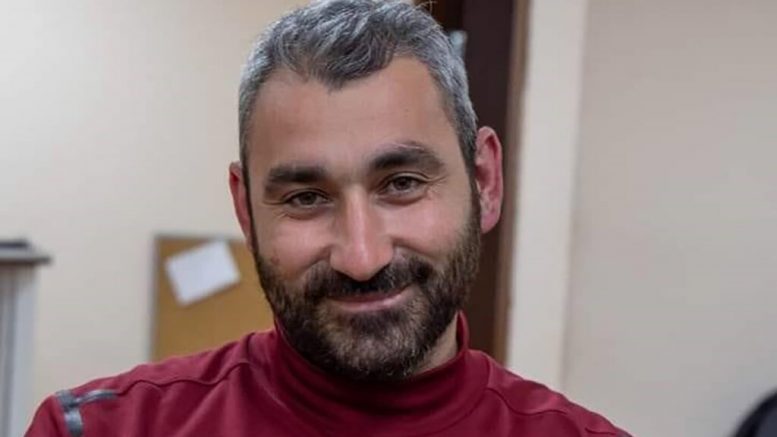In places where existing trade unions fail to organise workers, new unions will often emerge to fill the gap. And those new unions will sometimes be the subject of state repression as a result.
This is what appears to be happening today in Azerbaijan.
The existing trade unions in the oil-rich former Soviet republic are strongly tied to the regime. The news on their website consists primarily of support for whatever the regime wants and says, and opposition to Azerbaijan’s traditional enemy, Armenia.
Meanwhile a new union has come into existence to organise workers the traditional unions won’t touch. It’s called the Workers’ Table Trade Unions Confederation and its chairman, Afiadin Mammadov, was detained on 1 August on charges of disobeying police orders. Azerbaijani police detained another member of the confederation, Elvin Mustafayev, on drug charges three days later. And most recently, union activist Aykhan Israfilov was detained on 11 August and remanded into four months of pre-trial detention.
The three men and their union have been involved in ongoing protests by delivery couriers — workers that traditional unions in many countries have not successfully organised.
The men are also members of Democracy 1918 (D-18), a political movement aimed at challenging the leadership of President Ilham Aliyev. Aliyev has been the country’s leader for twenty years.
According to one report, D-18, which primarily campaigns for democratic reforms, ‘has also raised ethnic and gender issues that were ignored by the traditional opposition forces, and has dared to question the regime’s implacable hostility to Armenia.’
It has also taken up the cause of the country’s workers. According to one independent media source, ‘D-18 is organising autonomous trade unions. These unions are mostly focused on the service sector, largely targeting delivery businesses and taxi companies. Their union is 90% composed of food couriers who recently went on a strike against Wolt, the most popular delivery app in Baku. The union is now working on involving more workers, especially in supermarkets.’
A similar struggle is taking place in neighbouring Georgia, where Wolt couriers participated in the LabourStart Global Solidarity Conference in Tbilisi at the end of April.
Meanwhile, Azerbaijan’s national trade union centre, known as AHIK, is so close to the Aliyev regime that the home page of its website features the current Twitter feed of the country’s president. This sentence on the AHIK website is typical: ‘It was thanks to Mr. Ilham Aliyev’s tireless activity and decisive speeches that the Armenian aggressors were exposed in the Council of Europe, and an objective opinion was formed in the Western world about Karabakh, an inseparable part of Azerbaijan, about the conflict.’
In such a situation, one cannot expect the regime to welcome the creation of an alternative trade union movement — especially one with links to the political opposition.
If convicted, Israfilov and Mustafayev could face between five to 12 years in prison. It is not clear whether the confederation’s chairman, Mammadov, is facing a prison term as well.
According to a report on the independent news website OC Media, ‘the three labour activists were taking part in a series of demonstrations organised by delivery couriers. They were protesting a new traffic law. The draft law, titled ‘On Traffic’, was adopted by the Azerbaijani Parliament last December, obliging drivers of scooters and motorcycles with an engine capacity of at least 50km/h to obtain a special category driver’s license.’
D-18’s general secretary Samir Sultanov has insisted that Israfilov and Mammadov were arrested for their work promoting democracy and labour rights in Azerbaijan.
‘The wave of arrests in the country shows that the government is implementing harsh punishment measures for protecting workers’ rights and free speech’, Sultanov told OC Media.
Azerbaijan is one of the few countries in the world not surveyed by the International Trade Union Confederation for its annual Global Rights Index, though it is not clear why. The ITUC has not yet issued a statement on the arrests in Azerbaijan, where the regime-linked AHIK federation remains its affiliate.
***
This article appears in Solidarity.
